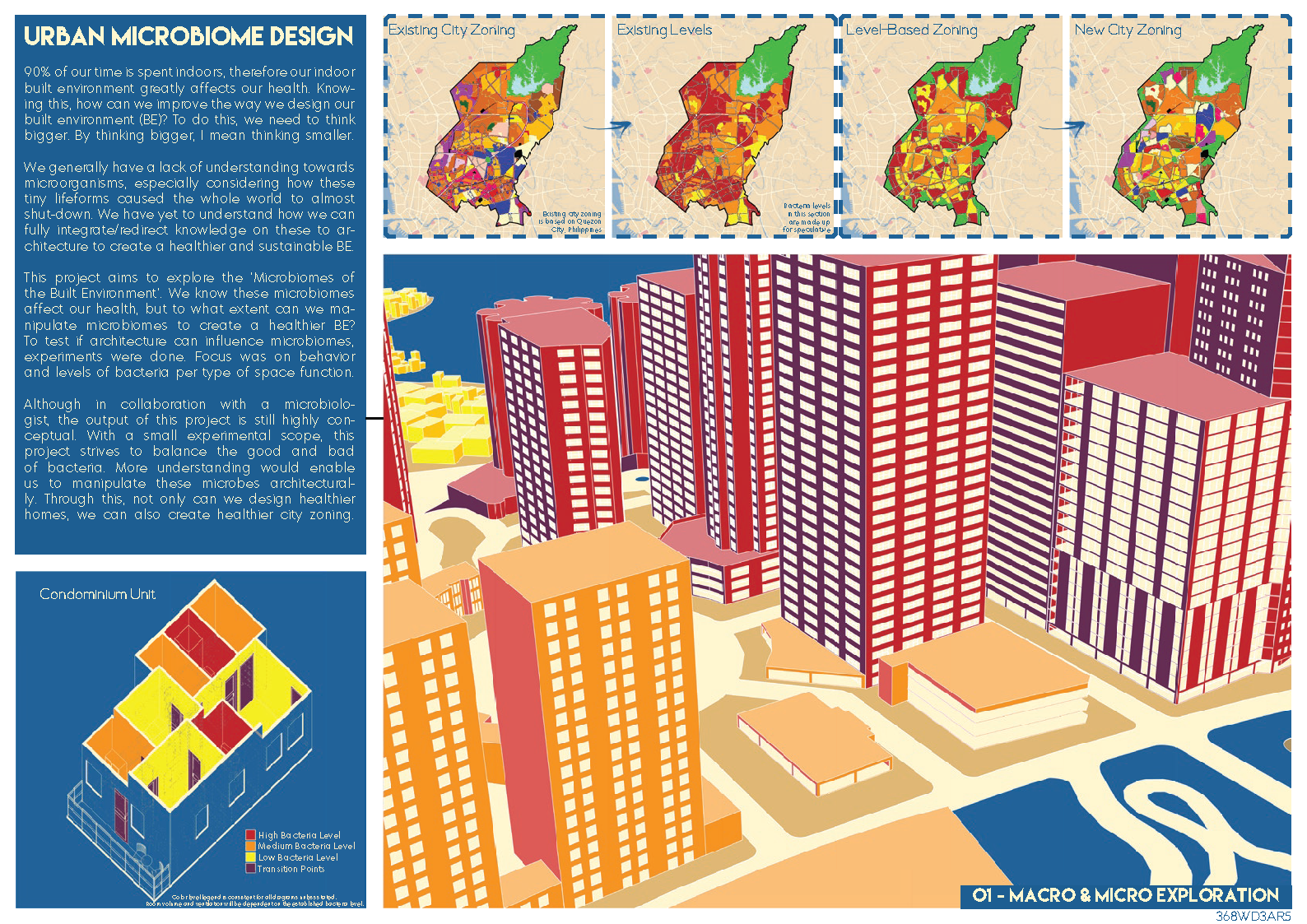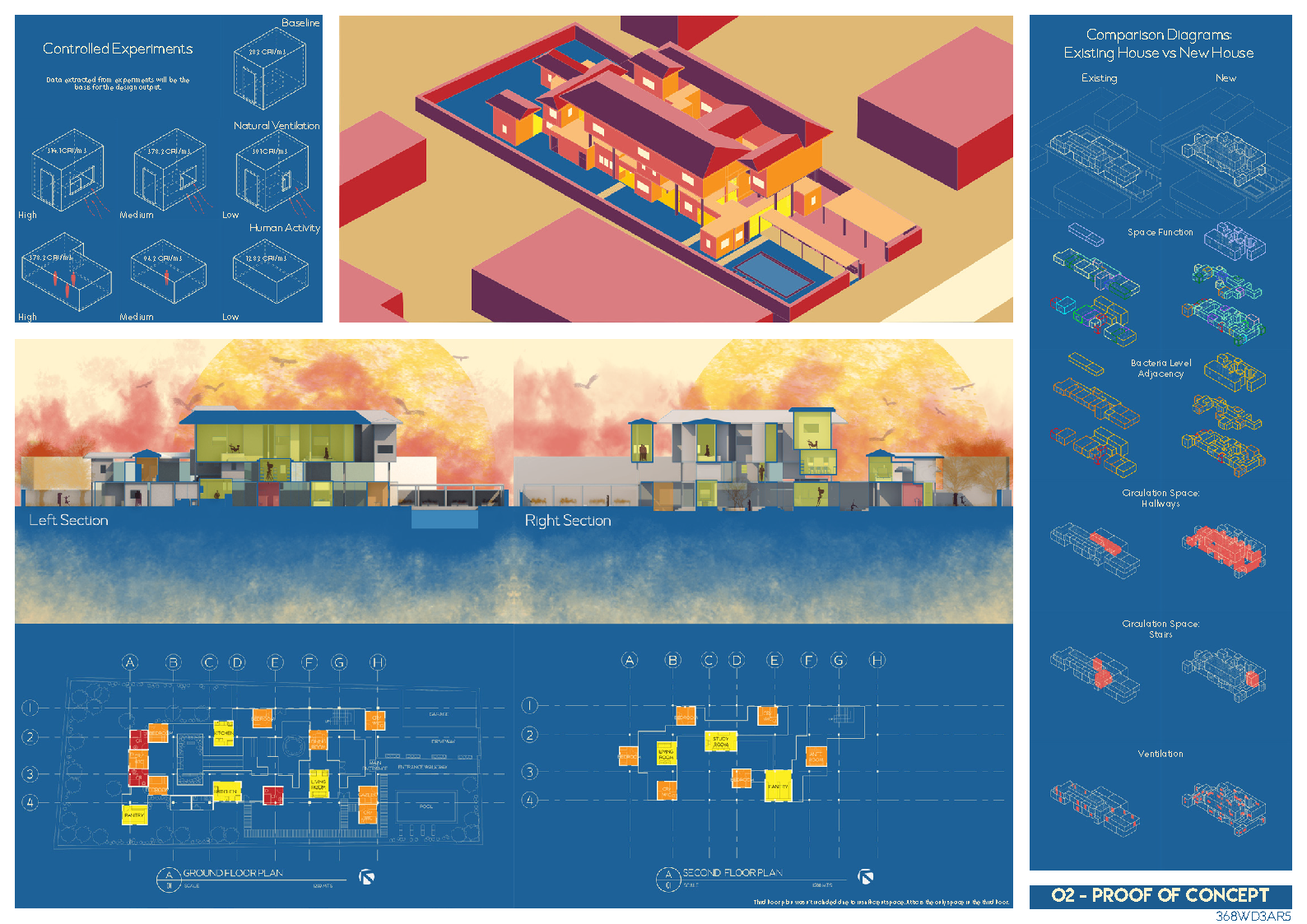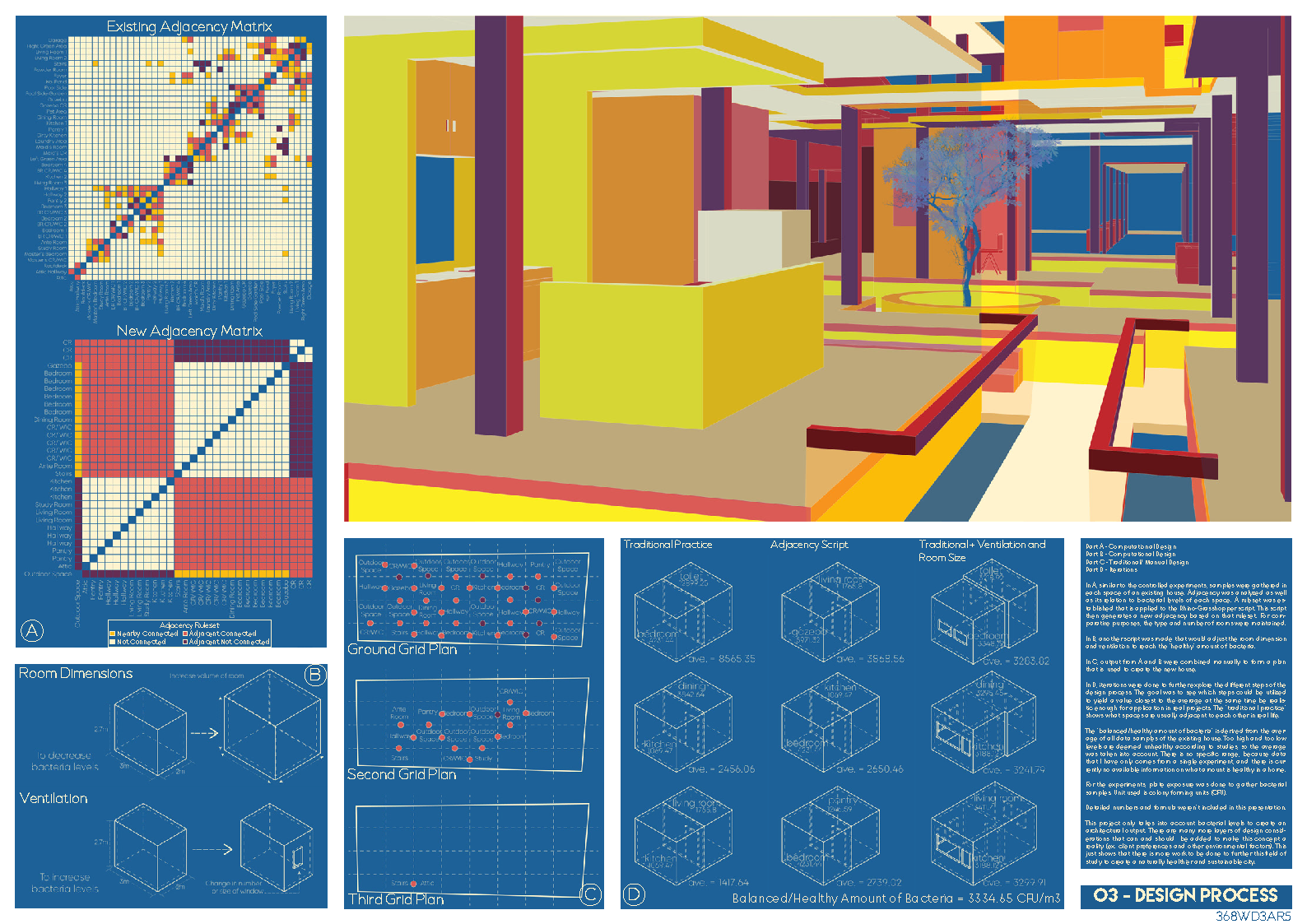Bea Villoria’s Thesis, Ultra Microbiome Design, was included in IAAC’s 8th Advanced Architecture Contest in 2020 and was chosen to be included as one of the features in the program book. The theme for the contest is Design for Living: Global Contest to Rethink our Habitat from Body to the City.
The Institute for Advanced Architecture of Catalonia (IAAC) calls its 8th Advanced Architecture Contest as a global reflection to rethink human habitats, at a time when the fight for life and climate allows us to consider how we would like to live in the coming decades.
The objective is for students and professionals from all over the world to propose how to design our living environment, at whichever scale most interests them to promote and protect human life: how to rethink our bodies, how to design the objects that surround us, how to redesign the homes that we inhabit, what functions they must incorporate, how to grow communities or re-naturalize public spaces, how to reinvent our cities taking advantage of digital communications in times of confinement and broadly how we define our relationships with others in a time of changes.
In these ways we want to inspire reflection on how we can accelerate our future using design in order to respond to the health, energy, food, production, environmental or social challenges of the coming years.
We like to think that each person’s life begins at home, which is the center of their universe and the origin of their social interactions. In times of crisis like the present, we have been confined to our homes and they have become microcities where we live, work and rest, connected to the world through information networks. So, after this experience, how do you imagine the future for our living environment?
The contest encourages participants to propose a design related to their way of life, at the scale that most interests them from our bodies to the city, anywhere in the world, and that reflects different cultural, environmental, economic or social conditions.




